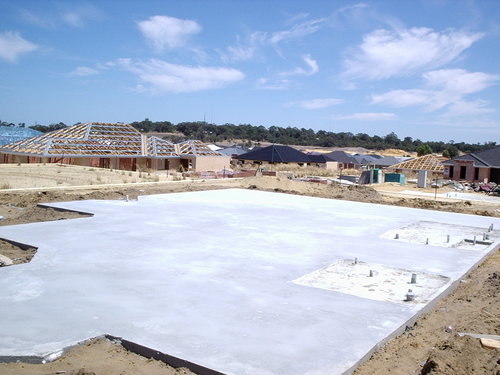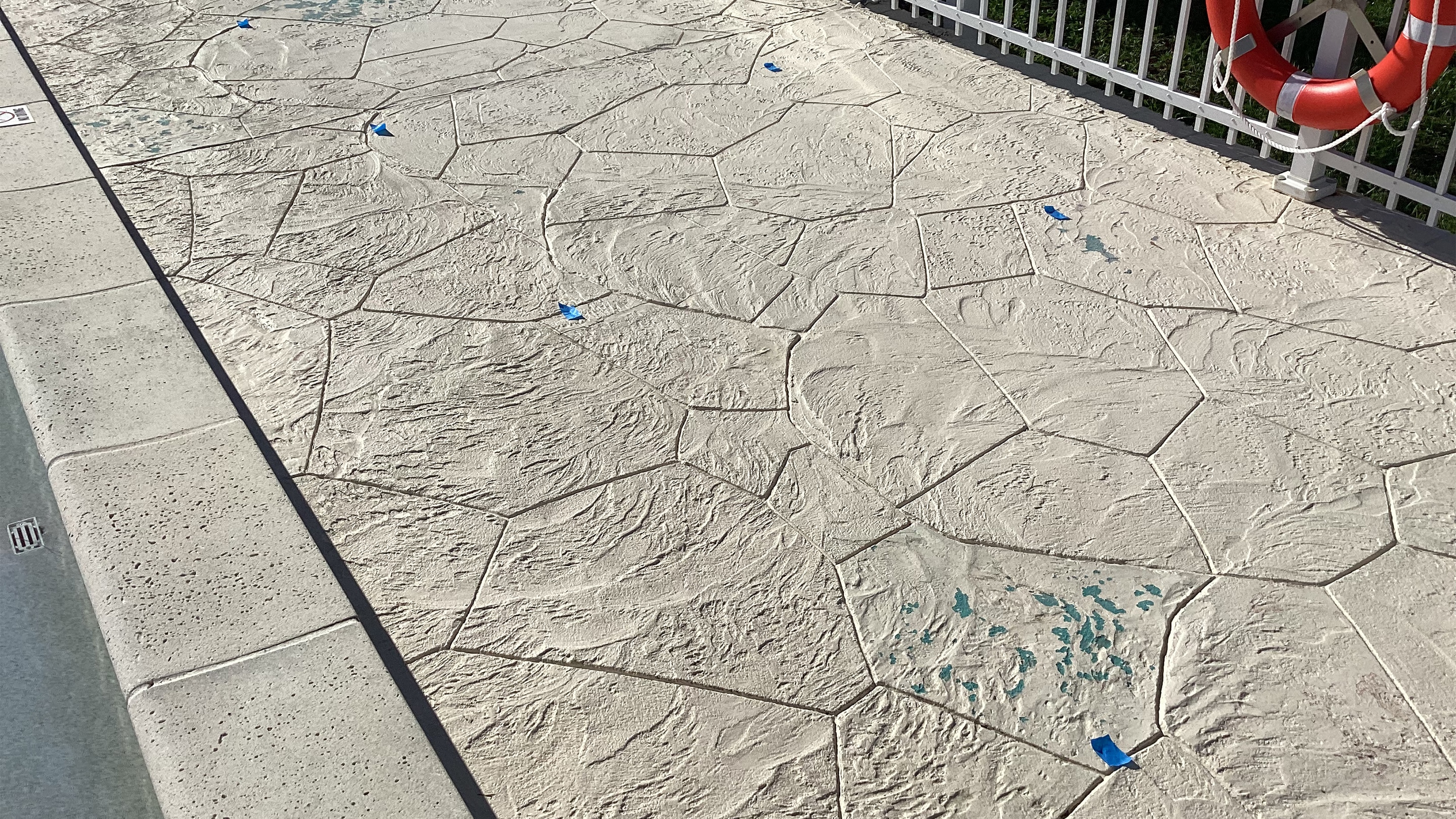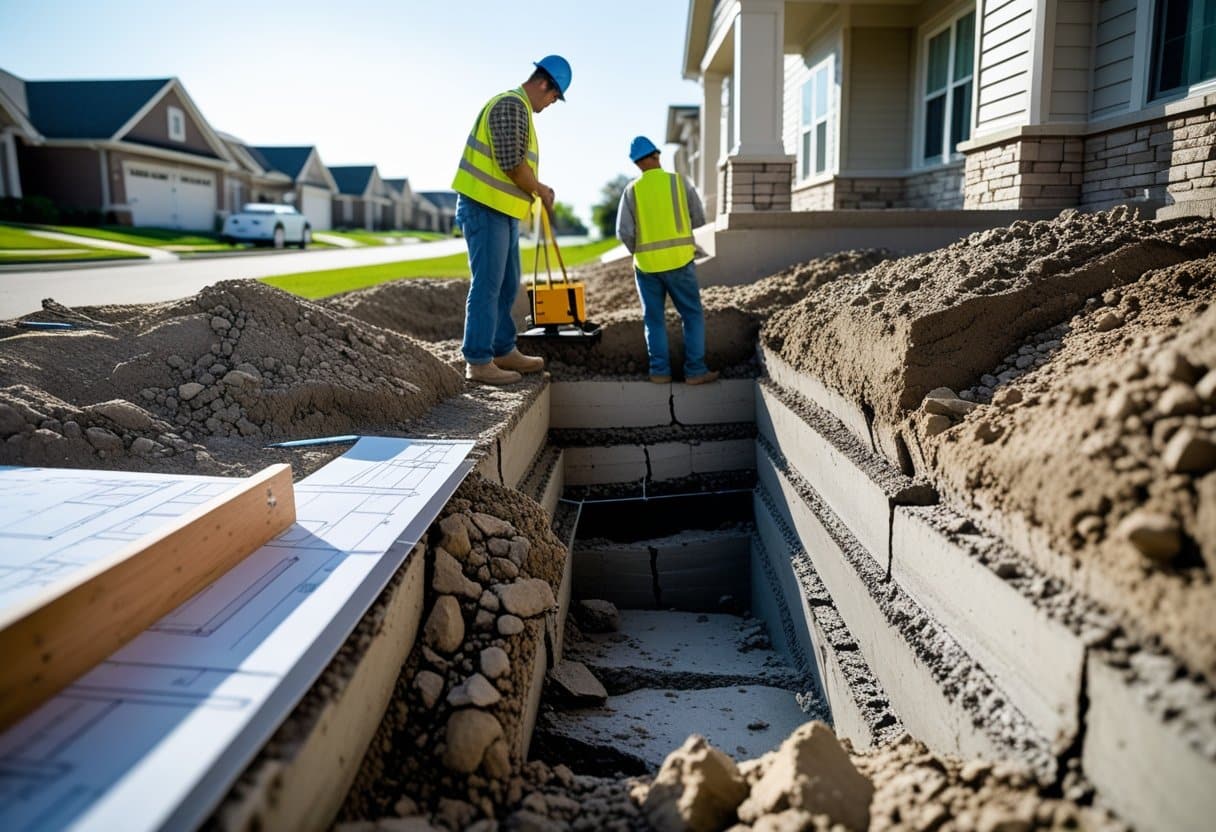While all buildings need a foundation, commercial buildings need a foundation that will be able to withstand high weight loads and temperature changes. Since commercial buildings tend to have more square footage than residential buildings, they need to be able to hold their integrity across a wide area. In this blog, you can find each of the different types of commercial foundations, and what they are best used for.
Slab-on-Grade Foundations

Slab-on-grade foundations are one of the more commonly used foundations for commercial buildings as it is an economical choice. Slab-on-grade is when a thick concrete foundation is laid directly onto the soil, resulting in a sturdy base for building. This type of foundation is usually used in areas with warmer climates and where the ground is less likely to freeze. Since the foundation is all one single structure, it is less susceptible to pest infestations. There are a couple of variations to this foundation including frost resistant slab-on-grade and floating slab on grade, where the foundation is not in direct contact with the ground.
Spot Footing Foundations
Spot Footing Foundations are commonly used to support single points of contact between the underlying soil and the foundation. These footings take the loads from a column and spread them to a wider area, which increases the ability of the soil to carry more weight. Not only does this kind of foundation help with increased load-bearing capacity, but it also helps the structure maintain stability through multiple points of contact with the ground. Other benefits include a foundation reinforced with concrete and rebar and the ability to apply this kind of foundation to piers and posts.
Mat Foundations

Mat foundations, also know as raft foundations are similar to slab-on-grade foundations in the sense that both have structures that rest on a single slab. However, unlike slab-on-grade foundations, in which the base slab only supports the weight of the lower part of the structure, mat foundations support the entire load of the building. Columns are installed to transfer the structure’s load from the upper floors to the slab itself. Mat foundations are usually used in scenarios where the underlying soil has a low bearing capacity, in which, the slab can evenly distribute weight across a wide surface area.
T-Shaped Foundations
T-shaped foundations are made of concrete footings that are housed below the frost line with walls built on top of those footings that extend to the soil surface. These kinds of foundations are typically used with taller structures or where underlying soils are more likely to freeze. Frozen soil puts stress and pressure on the slab, but T-shaped foundations help distribute the pressure more evenly.
It’s important to assess where your foundation is to see which would work best for your particular soil conditions. If your commercial building is already built, you should still know what foundation your structure is sitting on so you can keep an eye out for any damage.
As a trusted ground improvement contractor and a geotech construction company in Florida, Helicon specializes in using the latest technology to design and construct deep foundation and ground improvement solutions for your commercial property needs. We service these markets:





